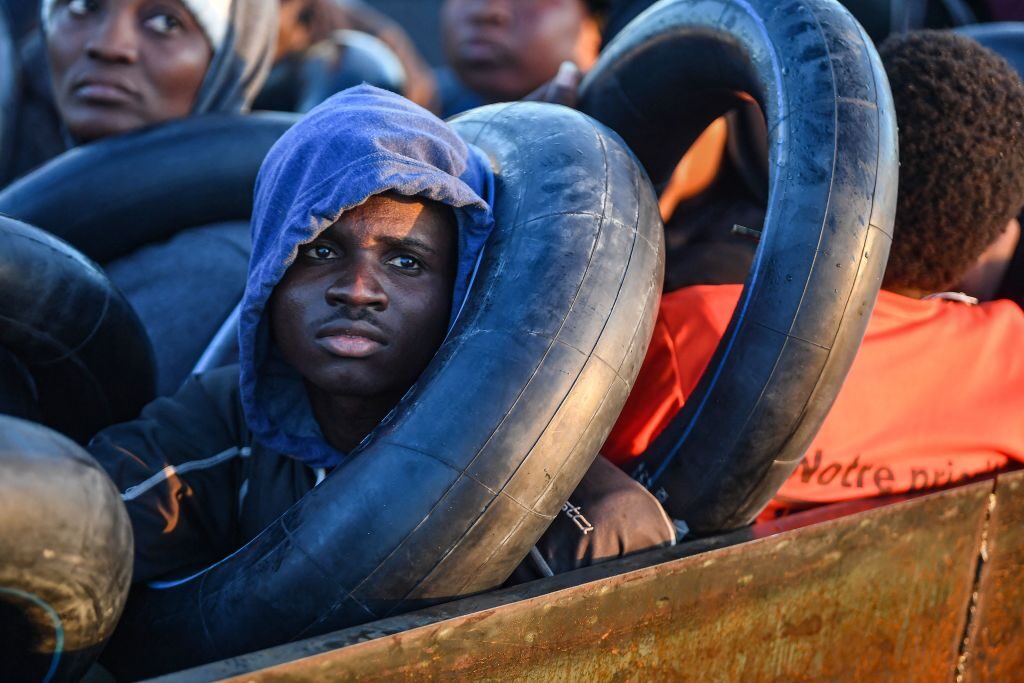One of the European Union’s early mottoes was In varietate concordia (“Unity in diversity”). Nowhere does this pious platitude fall flatter than in the realm of immigration. For decades, European elites clung to a sentimental vision of open borders and humanitarianism, while the people they supposedly represented grew angrier and more anxious with the destabilising effects of mass migration .
But something has shifted. The high-minded Eurocrats, long insulated from public opinion by layers of bureaucracy, seem to be flirting with a dose of realism. This week Euractiv revealed that the European Commission is proposing a list of seven “safe third countries” to which illegal immigrants can be deported: Bangladesh, Colombia, Egypt, India, Kosovo, Morocco, and Tunisia. The plan is for Brussels to streamline deportations, outsource the mess, and clean up the continent’s borders without getting its hands too dirty.
This proposal is part of a broader revision to the EU asylum regulation, and is expected to take effect in 2026. On paper it’s bold. But in practice it’s probably political theatre, more about optics than outcomes. Because for all the talk of “safe third countries”, the willingness of these states to absorb tens of thousands of Europe’s unwanted migrants is somewhere between limited and non-existent. Most will likely agree to take back their own nationals, especially if the EU is prepared to apply diplomatic or economic leverage when cooperation stalls. But a Rwanda-style arrangement like the one the UK came close to agreeing last year is another matter entirely.
Take Egypt, for instance. Long seen as a haven for Sudanese and Palestinian refugees, Cairo has hardened dramatically. In late 2024, the country passed a sweeping asylum law which shifted refugee management from the UN to the state, tightening entry, residency, and employment policies. If Egypt won’t take displaced Gazans, why would it agree to take Europe’s border-jumpers?
India is no better. For centuries, it welcomed the persecuted, from Parsis to Tibetans to Jews. But Modi’s India is cut from a different cloth. Today, it fences its borders, issues shoot-on-sight orders, and locks up Rohingya migrants as security threats. The Citizenship Amendment Act blatantly excludes Muslims. It’s a fantasy to think New Delhi would sign up to receive Muslim migrants expelled from Europe. If anything, India is in the business of deporting them.
Tunisia? Forget it. In April 2025, Tunisian security forces cleared out camps housing over 7,000 sub-Saharan Africans, arresting many and destroying shelters. NGOs supporting migrants have been branded “foreign agents”. Saadia Mosbah, a leading anti-racist activist, was arrested in 2024 on financial charges.
While Colombia deserves credit for taking in millions of Venezuelans fleeing Nicolás Maduro’s regime, it initially refused to accept its own nationals being deported from the US earlier this year. The stand-off only ended after Donald Trump threatened sanctions. If Colombia resists repatriating its own citizens, the idea that it’ll welcome undocumented Africans or South Asians from the EU is absurd.
As for Kosovo, Bangladesh and Morocco, there are quite clear reasons why each has no interest in taking in foreign migrants. And, even if they did, human rights lawyers would no doubt try to argue that those countries are unsafe for particular groups.
So is this serious policy, or just a desperate attempt to placate rising voter anger before the next European elections? The EU seems to believe it can throw money at North African or South Asian governments and be rid of the asylum burden. But these countries are not blank slates. They have electorates, economies, and identities of their own. And few of them want to become the holding pen for Europe’s unwanted guests. Even if deals can be struck, they will come with price tags and strings for which Brussels isn’t prepared.
Those in favour of the EU’s plan may point to the 2016 EU-Turkey migration deal. Under this agreement, Turkey committed to accepting the return of refugees from Greece. The results tell a compelling story: in 2015, over 850,000 migrants crossed the Balkan Route, with the majority being Syrian refugees fleeing the civil war. By 2017, however, the numbers had plummeted to around 30,000 — a sharp decline largely attributed to the EU-Turkey deal, but also to tougher border controls in countries such as Serbia, Hungary and Macedonia. However, the cooperation of Turkey in the deal was closely tied to visa liberalisation and promises of progress toward EU membership. The EU cannot replicate this with countries like India, Bangladesh, or Colombia.
Brussels has finally realised that diversity doesn’t equal harmony, at least not when it comes to asylum. But instead of confronting the permissive legal and political architecture that created the crisis, it is rearranging deckchairs on the Titanic. The slogans remain the same. The reality is shifting fast.











Join the discussion
Join like minded readers that support our journalism by becoming a paid subscriber
To join the discussion in the comments, become a paid subscriber.
Join like minded readers that support our journalism, read unlimited articles and enjoy other subscriber-only benefits.
Subscribe